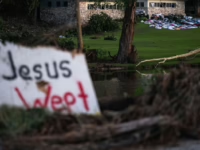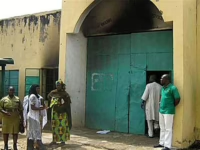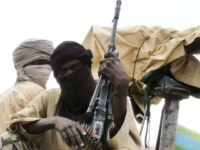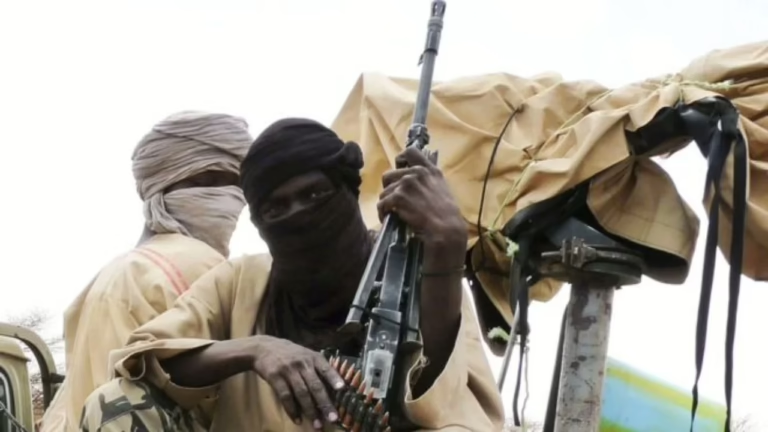Recent videos circulating online, showcasing ongoing negotiations between some local government areas in Katsina State and bandit groups, have reinforced the widespread opposition among Nigerians-including this publication-against engaging in talks with these criminals.
Currently, eleven local government areas-namely Jibia, Batsari, Safana, Ɗanmusa, Kurfi, Musawa, Matazu, Faskari, Kankara, Ɗandume, and Sabuwa-have reportedly entered into peace agreements with bandits. These accords were overseen by government representatives, traditional leaders, and security personnel.
The most recent to join this seemingly ineffective truce is the Sabuwa local government area. Yet, the display of heavy weaponry by the bandits during these meetings, and the fact that they retained their arms afterward, starkly highlights the fragility and questionable nature of these so-called peace deals.
These armed groups arrived at the negotiations equipped with AK-47 rifles, Rocket-Propelled Grenades, and GMGs, among other lethal weapons, and left the venue still in possession of these arms.
If the mere fact that they came heavily armed and departed unarmed is not alarming enough, the brazen attitude exhibited by some bandit representatives during the talks is even more disconcerting.
Bandits Release 70 Hostages Following Peace Agreement with Katsina Communities
In a widely shared video, one bandit leader openly declared to government and security officials that for every ten bandits killed, twenty more would emerge to replace them. Such audacity is difficult to fathom. Like many Nigerians, we are compelled to acknowledge that the country seems vulnerable to these lawless factions.
It is evident that the local government officials negotiating with these bandits are doing so from a position of vulnerability, which poses significant risks. It is troubling to reflect on how the situation has deteriorated to this extent.
We have consistently maintained that negotiating with these criminals is not a viable solution, and historical examples support this stance. In Katsina State, former Governor Aminu Bello Masari engaged with bandits, visiting their forest hideouts, offering financial incentives, and even posing for photographs with them. The outcome? An escalation in violence.
Similarly, in Zamfara State, former Governor Mohammed Matawalle-now Minister of State for Defence-granted amnesty to bandits responsible for widespread killings, abductions, and displacement, hoping to quell the violence. Yet, the region remains a hotspot for banditry.
Perhaps this explains why Governors Dikko Umar Radda and Lawal Dauda Dare, successors to Masari and Matawalle respectively, initially vowed not to negotiate with bandits. However, Governor Radda appears to have reversed his position, as evidenced by the eleven local governments in Katsina entering into these so-called peace agreements.
Regardless of perspective, these negotiations with bandits-who have perpetrated countless atrocities, extorted millions in ransom, and displaced entire communities-underscore a glaring weakness within the state apparatus. No amount of spin can obscure this reality.
Many critical questions remain unanswered about these peace deals. Do they not reveal a failure by the state to safeguard its citizens and their property? Can they truly bring the peace that communities desperately seek? Given that previous agreements failed to halt the violence, what guarantees exist that the current efforts will succeed?
Our stance on negotiating with bandits remains firm: it is counterproductive and encourages further criminality. How can a nation expect to curb violence by appeasing those who kill, maim, abduct for ransom, and commit heinous crimes against its people?
Even if, hypothetically, negotiations were the key to resolving these challenges and securing lasting peace, what provisions are being made to support the victims of these crimes? Justice demands that those harmed receive compensation and restitution before any genuine peace can be achieved.
More troubling is the apparent duplicity within the security forces-simultaneously engaging with bandits while purportedly pursuing them-casting doubt on the sincerity and effectiveness of state efforts.
This situation also lends credence to suspicions that insecurity has become a profitable enterprise, especially considering the lack of transparency in related budgetary expenditures. Nigeria risks international embarrassment as its officials lose control over one of their core constitutional responsibilities: protecting citizens’ lives and property. This failure seems driven by a desire to maintain political appearances ahead of upcoming elections.
























